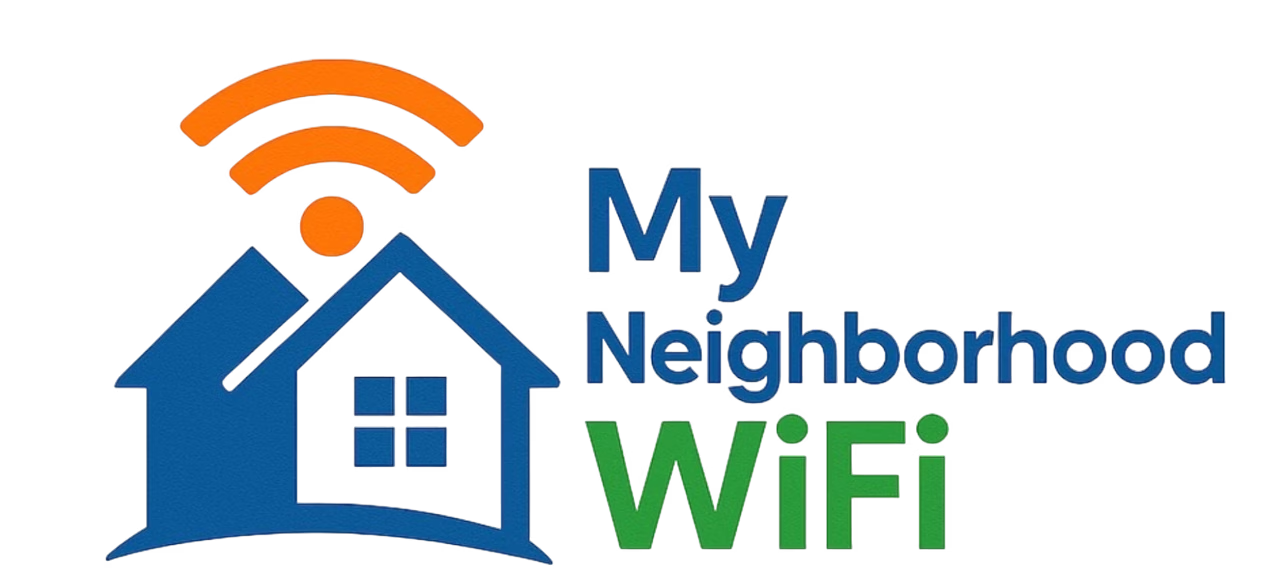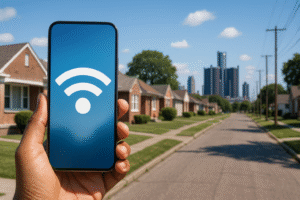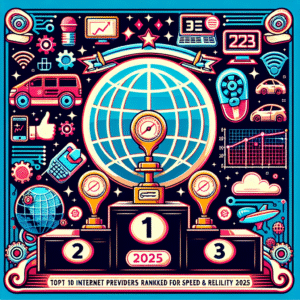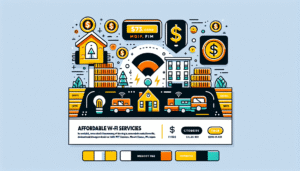
In our always-connected world, many people crave simplicity—fewer distractions, less clutter, and tools that actually make life easier. If you’re a minimalist at heart, streamlined connectivity can help. This means choosing internet plans that give you what you need—no more, no less. The best internet plans for minimalists focus on balance: enough speed to cover everyday activities, affordable costs, and straightforward setups that don’t overcomplicate your digital life.
What Does “Minimalist Internet” Really Mean?
Minimalist internet isn’t about having the slowest connection or limiting yourself to dial-up. Instead, it’s about aligning your plan with your lifestyle. Just because maximum speed packages are out there doesn’t mean you need them if all you do is video call, browse, or stream movies occasionally. Minimalists prioritize:
- Simplicity: Easy-to-understand plans without unnecessary add-ons.
- Affordability: Paying only for the connectivity you’ll actually use.
- Practical Speeds: Internet that supports your real digital habits.
- Reliability: A stable connection without surprise slow-downs or hidden fees.
Everyday Needs and Internet Speeds
Different online habits call for different speeds, but most people don’t actually need the most expensive gigabit plan. Here’s a quick way to size up what works for a minimalist lifestyle:
| Activity | Recommended Speed |
|---|---|
| Email & light browsing | 1–5 Mbps |
| Video calls (Zoom, FaceTime) | 10–25 Mbps |
| HD video streaming | 25 Mbps+ |
| 4K streaming or gaming | 50–100 Mbps+ |
If your internet use falls on the lower end of this table, picking modest plans can save money while keeping your life connected without overkill.
Why Overbuying Internet Can Hurt a Minimalist Lifestyle
Minimalism is about clarity. Oversized plans bring unnecessary clutter in the form of higher bills, confusing packages, and unused bandwidth. A minimalist approach means evaluating your actual digital footprint:
- How many devices are connected daily?
- Do you really need 4K streaming on every device simultaneously?
- Is your work heavy on video editing uploads, or are you mainly emailing and browsing?
By asking these questions, you can avoid falling into the high-speed marketing trap and instead choose something clean and efficient.
Smart Ways to Keep Your Internet Setup Minimal
It’s not just about the plan—it’s also about the physical setup at home. Too many wires, extra hardware, or overly complicated systems add stress. For minimalists, less is always more:
- Use a single, reliable modem-router combo rather than multiple devices.
- Keep only essential devices connected to your Wi-Fi to improve stability.
- Place your router centrally to reduce dead zones without buying boosters you don’t truly need.
- Opt for wireless connections where possible to avoid tangles of cables.
Budget-Friendly Options That Still Deliver
The minimalist rule of thumb: spend where it counts, cut where it doesn’t. Instead of paying premium prices for speeds you’ll never fully use:
– Look for community-shared insights on platforms like Reddit to see what locals are using successfully.
– Check Yelp and neighborhood forums often to see how certain providers perform in real-world usage.
– Join a discussion on Quora about balancing internet speed and cost efficiency.
These resources give you human experiences, not just marketing promises.
Minimalism and Internet in the Work-From-Home Era
Working from home often increases pressure to upgrade to ultra-fast plans. However, a minimalist can still thrive with practical speeds. Most video conferencing software like Zoom and Google Meet requires relatively modest bandwidth, and project management tools are lightweight.
Minimalists benefit from separating “need to have” from “nice to have.” Instead of jumping to the highest tier plan, test mid-range plans first—you may find they easily handle your home office needs while keeping costs down.
Tips for Practicing Digital Minimalism Through Your Internet Plan
1. Audit Your Usage
Track your actual consumption for a week. Many routers show how much bandwidth each device uses. If the numbers are lower than expected, you’re probably safe downgrading.
2. Cut Device Fat
Disconnect old phones, smart gadgets, or streaming sticks you rarely use. Each device consumes tiny chunks of bandwidth, adding clutter to your network.
3. Embrace Offline Times
For true minimalism, schedule intentional offline hours. The less you demand from your internet, the fewer resources you’ll require overall.
Minimalist-Friendly Internet Plan Checklist
Before signing up or switching, test your plan against this checklist:
- Simple monthly cost, no surprises?
- Speed matches actual lifestyle needs?
- Setup uses minimal hardware?
- Easy customer support or community forums?
Tools That Help Minimalists Stay Simplified
Some tools make it easier to live with less bandwidth:
- Browser extensions: Tools like ad-blockers can reduce data load while speeding up browsing.
- Download managers: Batch large downloads during off-peak hours to keep everyday connections smooth.
- YouTube tutorials: If you struggle setting things up, countless guides on YouTube help configure routers and optimize Wi-Fi.
When “Less” Internet Might Actually Mean “More” Peace
Minimalist living isn’t simply about owning fewer things. It’s about creating space for what truly matters. By choosing streamlined connectivity, you create:
- Fewer bills and no financial clutter.
- Less stress from technical complications.
- Just enough technology to keep you effective and connected.
Sometimes, the best internet is the one you rarely think about because it works quietly in the background, supporting your lifestyle without demanding more from you.
Final Thoughts: Simplicity over Speed
The best internet plan for minimalists is not always the fastest plan available but the one that offers clarity, affordability, and balance. By choosing wisely, you can create digital harmony at home—removing excess noise and ensuring your connection supports a life of simplicity. Streamlined connectivity is not about less internet—it’s about less complication.
“Most inquiries are answered within the same day”
Written by admin
Content writer and tech enthusiast sharing insights on internet connectivity.



